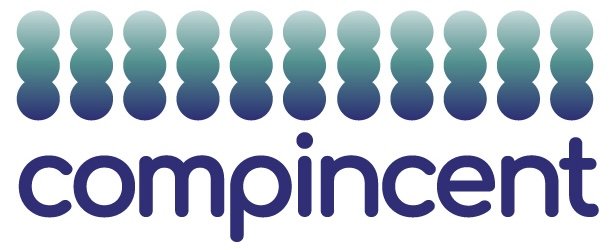Wednesday 16th October 2025
Pet therapy? Snack cupboards? On-site counselling?
Building a multi-generational benefits strategy without Z-washing
Our September 2025 workplace survey asked people what they really value in their current or future workplace. Understanding this helps us optimise productivity and motivation simply by making the workplace truly comfortable for a diverse range of generations, so they can relax into delivering their best efforts and outputs.
You want to embed a welcoming culture that works for everyone, from Gen Z to your established employees. Employee benefits strategy offers a brilliant opportunity for employers to engage authentically with staff. In our survey, we explored perks of all kinds that make people feel valued, going beyond salaries and pensions.
The many meanings of work-life balance
Absolutely no one in any age group disagreed with expecting their employer to promote a good work-life balance. The concept is so well understood and so often discussed these days that it’s not seen as a workplace benefit, it’s a basic requirement. But understanding what employees really need and want to create a balance that’s right for them is essential if you want to deliver it. And that balance looks different for everyone. Life and career stage can be a big determinant.
The experiential office: a Gen Z approach to benefits
If you want to attract and motivate Gen Z in your workplace, you need to provide an all-round good experience, blending security and prospects with benefits that help them set a good current work-life balance on their terms.
Our younger cohort’s top benefit choices were health insurance and free meals at work. They understand the value and reassurance of healthcare peace of mind and they favour practical savings that help them to socialise at work – and to make time for socialising outside! Trips and travel as a reward for good performance appealed to 42% of of Gen Z, reflecting the desire for experiences that they might not be able to afford… yet. Free gym membership was a priority for 38% of the cohort – another potentially expensive personal subscription that means a company discount or free pass has real value. Encouraging healthy habits has got to be a win for everyone. And while retirement is a long way off, two thirds of the Gen Z respondents were in favour of an enhanced pension plan – it’s a mistake to accuse them of frivolous or short-term thinking.
Assume nothing: the risks of Z-washing
What Gen Z didn’t prioritise was as interesting as what they did. For example, counselling at work, despite what we commonly read about Gen Z’s concern for their mental health. Perhaps it’s a sign of their self-belief and resilience, as they enter the workforce. Nor were sustainability-related incentives popular. This may suggest that Gen Z rightly expects employers to take responsibility at a corporate level for sustainability. These are not perks, they’re fundamentals.
We think employers need to guard against trying to ingratiate themselves with Gen Z by dreaming up low-effort, on-trend initiatives. It’s as cringeworthy as trying to use generational slang at work. Inspired by the concept of “greenwashing”, we’ve coined the phrase “Z-washing” – for us it neatly references an inauthentic nod to either Gen Z and/or the Zeitgeist (prevailing trend.)
Ask the questions and understand the motivations
Our free text question, asking about helpful or inspiring benefits that a future employer could offer, revealed some brilliant, simple ideas. These perks aren’t complicated to set up, but they could be hugely motivational. We think employers who listen and respond in innovative ways like these demonstrate a genuine willingness to engage their Gen Z workers.
- Personal growth: Employees want to grow as people, not just as workers. “I’d love the opportunity to learn a skill by doing something non-work related frequently.” That’s a powerful idea for development.
- Everyday wellness: “How about a ‘snack cupboard’ stocked with free fruit, yoghurt and chocolate, to provide a boost during the day?” People appreciate simple care for their daily well-being. It’s a low-cost, high-impact gesture.
- Kindness and empowerment: “I’d love to be able to award a gift to someone that I believe isn’t recognised enough” places a high value on teamwork and empathy in the workplace.
- Relaxation: “Pet therapy, so you can relieve stress by spending time with a dog in the workplace – maybe taking them for a walk on a break?” If your workplace is suitable, you could allow people to bring pets to work or even adopt and care for a dog or cat.
- Inspiration and socialising: “I’d love a book club at work. I’ve found clubs like that so good for making friends at university and in my previous Saturday job, and it gives you the motivation to read new things.” Support socials that bring people together in different ways – not just in a bar or on the golf course!
Well-balanced workplaces: rewarding, practical and human
Benefits strategy success comes from offering a rounded employee experience that supports financial and future aspirations and security as well as appealing on a human level to everyday wants and needs.
A traditional, static package won’t cut it for much longer. Choice is key. Gen Z needs clear progression. More experienced workers need flexibility. Everyone’s priorities will evolve through their careers. So, review and renew the benefits you offer frequently and in consultation with your present and target workforce. A flexible, self-service total pay and benefits platform looks like a very smart choice for the future.
What next?
If you’d like a free copy of our full summary of the survey data and analysis, for more detailed insights into generational preferences, email anna@compincent.com – we’ll send it to you ASAP.
Visit the Compincent Knowledge Centre (https://compincent.com/knowledge-centre/) home page to review all three of our survey insight blogs.
